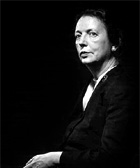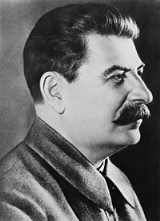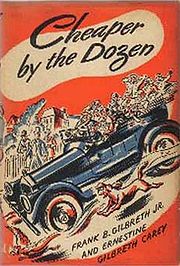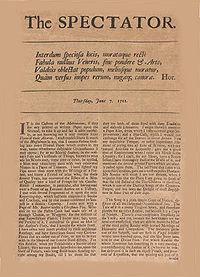
The other day, a young woman, a student at the University, asked me for a Bible. We had a grand time together. She'd been told she would need a King James Bible, specifically, "with a concordance." We had many handsome and inexpensive Bibles, and more than one concordance, but no such single volume as the one she'd described. (Most annotated editions seem to use more standard, modern translations, and what are called "study" Bibles, are less scholarly works than aids to private worship, and notoriously sectarian.) She had not had occasion to read much in the way of Bibles, and I don't know that she knew just what a concordance was, but we found a beautiful edition of the King James for less than ten dollars. Then she asked me for a recommendation for the concordance. Presented with
Strong's Concordance, at four times the price and size of the Bible I'd helped her to select, she seemed a bit dubious. It is a daunting thing, Dr. Strong's big book; an index more than a study-guide, even in its modern revision, and clearly not what she was expecting. I told her a little about the method employed in the book, and a little of its history. She expressed a genuine interest in this, but decided to think about the purchase a little more carefully. She explained that she is planning "to work seriously," with the help of her advisor, on Milton's
Paradise Lost, and was already enjoying all her preliminary explorations. She liked the Doré illustrations, for instance, in preference to the Blake, though she wanted editions of both, sadly neither of which we had in stock. We talked about Milton's politics, briefly, and his blindness. I mentioned, as the four hundredth anniversary of Milton's birth had so recently passed, that there were at least two well-reviewed new biographies upstairs, and, as that's where we kept the poetry as well, up we went. At some point, I made passing reference to the poet's "majestic patience." She had never heard of Thomas Babington Macaulay, and so I left her to see if I couldn't, quickly, print out a copy of his essay on Milton. I wanted her to have the full text, at least of the quotation,* but our computer on that floor is an old one, and by the time I'd found the essay online and tried to print it, she was leaving for a class, so the best I could do was scribble the essayist's name for her and recommend she look it up for herself when she had the time. She was effusive in thanking me for my help, and I was equally admiring of her taking on such a weighty project with such obvious enthusiasm. Safe to say, we thoroughly enjoyed our ten minutes together in the bookstore.
It was such a pure pleasure, talking with this young person so wild-eyed for Milton, so undaunted by all that would be necessary just to read him well, let alone write about him. When was the last time I'd met someone so eager to discuss a major poet? How many such readers does
Paradise Lost still find? How many did it ever?
That last question is one for which I wish I had an answer.
The Epic Poem, you know, is quite dead, or so, at least, I've always heard. I question how such things are judged. Did Milton, did Dryden, did even Pope's mock-epic, or his translations of Homer, ever have so many readers that they might be called popular? In a population so much smaller, and presumably less literate than ours, was the percentage of the people who might even recognize the name of John Milton or his poem really once so high as all that? I can't imagine Milton was ever popular entertainment, like Bunyan, found in every home with a Bible. Perhaps I'm wrong, but it would seem to me that even the greatest of the English poets had an audience not so much more considerable than that they might have now.
Here was a woman in her twenties, in 2010, after all, reading Milton with both pleasure and purpose. A student, it's true, but then, what of that? Who else keeps our literature alive but the students thereof?
I will admit, Milton has defeated me no less than three times, but then, I'm not a student. Likewise, I have quite given up on Dryden's Virgil, at least for now. I made it as far as Book V. of
Aeneis, before I quit. Not the fault of the poets, I don't think, in any case. The subject of either was not something in which I had the slightest interest, and great as the poetry was in Milton, or as entertaining as Dryden made Virgil, I could not care about the various doings of the Gods or the Romans.
But even if I failed the poets, can I really say that it was the form that failed me? I think such a suggestion is simply silly. The value of a particular kind of literature can not and ought not to be measured just by either its present popularity or my personal interest in it. What kind of brass would it take to demonstrate the failure of an art form, based on nothing more substantial than that?
Now, David Shields says the novel is dead. Had you heard? I'm sure you have, if not from Professor Shields, or his many friends among the reviewers, then from some other, older avant-gardists. When I finished reading David Shields' new book,
Reality Hunger: A Manifesto -- or rather, when I finished shuffling through the book yet again, as it doesn't really lend itself to reading so much as flipping back and forth between the helpfully numbered patches of text and the notes at the back-- I was tickled to realize that that was indeed as close to making a revolutionary statement as this "manifesto" comes. (And just when one feels safe in assuming that any form of literature is dead, like say, the manifesto, here comes some benighted soul to say otherwise, egh?)
Now on what basis does Professor Shields restate this tired old premise? Well, so far as I can gather from his blender-cocktail of a book, the novel died right around the time that Professor Shields lost interest in writing and or teaching them. Shields was a novelist, you see, so a great deal of his new book is taken up with explaining, sort of, why he isn't anymore, why novels now bore him -- both writing them and reading them. He still reads some of them, you understand, at least the novels of his friends, and with an almost embarrassing, even obsequious relish. In his book, Shields includes a whole chapter, if that's the word, made up of snatches from his admiring letters to fellow novelists, and he selectively quotes from any number of others throughout; usually rather bald statements about the failure of the novel -- natch. The book's cover is the key, as it turns out, to understanding this evident contradiction: front and back, the dustjacket of Professor Shields' book is pinned with valentines from many of the same folks, including his novelist friends, he admires so extravagantly in the text. The novel then may be dead, so far as Professor Shields is concerned, but his friends aren't, and neither, it seems, is the fine old art of logrolling. But somewhere, elsewhere, there would seem to be an argument underway, presumably in a classroom, or some faculty party, or amongst novelists themselves, I guess, though not in Shields' book, about how being a novelist isn't what it used to be, or that at least the novel isn't. Couldn't tell you just who it is that is arguing for the novel, not based on this book, but evidently somebody, somebody other than the novelists Shields seem to know, must be making an awful din in defense of say,
Middlemarch. Not an unfamiliar debate, even to the likes of me, this question of is-the-novel-dead? but then novelists have been anticipating, and bemoaning the novel's death almost from its birth. Amusingly, there is much in Shields' book both lamenting the failure of the novel to maintain its centrality in the culture, and arguing that the novel doesn't really deserve to be there anymore, at least not for the reasons it may once have, or something like that. (It might be argued that what the novel did to achieve its place in the supposed center of things, is exactly what Shields finds so distasteful, and that the modern and postmodern critical insistence that the novel ought not to do any such thing anymore, or would at least do better to be bothered about it less, namely, better ask the important questions in a human narrative than a personal or philosophical treatise, is what has undone the novel.) Anyway, Shields, it seems, is done with the wretched thing.
Professor Shields tells us that he does not read novels for their stories or their style, or even for the questions addressed, but rather for their "ideas." Now that's either disingenuous, or just plain silly. Great novelists are uniformly, at best, second-rate philosophers. To read a novel just for the novelist's ideas makes about as much sense as reading Hume's
Treatise of Human Nature for it's gripping narrative, good humor or moving characterization. Just imagine reading Dickens for his statistics, Tolstoy for his theology, Stevenson for his seamanship. It is eating rice-pudding for the raisins.
But surely Professor Shields knows this? The fact is, he isn't come again to mourn the passing of the novel, or even to just praise the usual assassins. No. Because the revolution Professor Shields has decided to join, has in fact decided to lead, has not proved to be much of a revolution at all, just something of a beer hall putsch. It took me quite awhile to decide just who or what Professor Shields was so sore at. Turns out, it's just copyright lawyers, the fact-checkers at the New Yorker, his fellow members in good standing at the MLA, and the readers of David Shields. Seems Professor Shields just ain't feelin' it, the love, I mean.
That's just a guess, of course. Regrettably, I can't say that reading Shield's new book has much informed me as to his motive for writing it. I'm still not sure just to whom the book is addressed, other than himself, and or some person or persons unidentified by name who've been condescending to him in a faculty meeting. Now, if Professor Shields wants to convince himself that being a novelist who no longer writes novels isn't a bad thing, or if he wants to just cock a snook at the stuffy buggers in his department, that's all alright with me, but I was made to feel, reading his new book, that an awful fuss was being made about my failure, as a reader, to fully appreciate the writer, David Shields, when I honestly had yet to say, or even hear, a word against him. The truth is, while I can't say I've studied him, I did enjoy some of what I'd read heretofore. Evidently, this was not enough. Evidently, there's something more to it than that, and, on my part, as a reader, something considerably more is owed David Shields, and by persons more important.
And that, I would hazard, is why Professor Shields has decided to kick the novel to the kerb. Writing novels, good ones, got the man a name, and a job teaching the reading and writing of novels, but it has not made him entirely respectable. He would be more than just a novelist who has stopped writing novels, more than just an occasional memoirist and reviewer. He would be more even than a critic.
So instead, he's decided to write essays, after a fashion, and he intends, I think, to tell us why. That's his story, anyway. I see no purpose in combing every tick out of this shaggy dog, but I was left to wonder if there wasn't rather more, and less, to this business of the novelist who teaches fiction rejecting the form that made his name. It made me think of, say, a soprano past her prime renouncing opera, not because she can't sustain the notes, or because she's grown bored with singing Wagner, but because for some time now, she's at great pains to explain, she's preferred, secretly, honestly, in her heart of hearts, always, singing Irving Berlin to Verdi. Moreover, she intends to prove, that "Say It Isn't So" is every bit as important a work of art as "Addio del passato", damn it.
Here then, I think, may be the why of what Professor David Shields is at pains to claim for what he, adopting John D'Agata's name for it, calls the "lyric essay." Perhaps D'Agata and Shields, academics both, must justify with this new name writing as Charles Lamb did almost two hundred years ago, in order to avoid their efforts in this line being mistaken for something else. I don't know, but my guess would be, should they simply write such personal essays: essays in keeping with the tradition that begins with Montaigne and that continues through Lamb and on to E. B. White and now popular entertainers like David Sedaris, among others, essays meant to entertain and engage the reader personally, essays in which a personality, rather than just a point, -- philosophic, moral or of scholarship, -- is being made, the good Professors might be accused of being less than serious, as well as too casual about their bibliographies, etc. Maybe that's why both of these very talented essayists seem to feel that rather than writing personal essays, something they've both done admirably before, they must now defend, at length, their hankering to do so. As I say, I don't know.
There does seem to be something disingenuous in this crabwise move from fiction to nonfiction, at least when Shields makes it obvious that he intends to take not just his priorities as a novelist, but his prerogatives, with him. In her essay, "The Art of Biography," Virginia Woolf says of the novelist that fiction "... is created without any restrictions save those that the artist, for reasons that seem good to him, chooses to obey." Shields, I think, would extend this privilege to the "lyric" essayist. The resulting work is not then, in Shield's case, so much written as stitched; from lecture notes, quotations and paraphrase, interjections, expostulations, and guff. His book is organized as a series of numbered paragraphs, some by the author, but most not, and all meant to work as a kind of dizzy montage or collage. It's all a bit bombastic and arch, but it can also be great fun, in a name-that-tune-sort of way. The notes at the back offer a grudging explanation of who said what. Okey-dokey. But in one thing at least, the essayist, whether writing personally or critically, or somewhere between the two or as both a critic and a personality, has maintained a respect, if not for tradition and form, or even copyright, then at least for acknowledging when what is said was better said before, and by whom. One of the great virtues of the essay has been, since the days of Montaigne and Bacon, that, at its best, it invites rather than precludes consideration of its sources. (Indeed, Montaigne, "the father of the essay," at his worst, can read very much like just the kind of lecture notes from which, Shields has said, this new book sprang. ) Moreover, there is no literature likelier than the essay to encourage further reading, or to even insist, that when one is done reading, one is never done reading. Even the most memorably individual practitioners of the essay, even the most seemingly self-involved, even the least reliable as witnesses to their own lives, have assumed in their readers an interest in knowing more than just what the essayist had to say. To a man, and to a woman, from Montaigne to Woolf, from Lamb to Vivian Gornick, the best essayists, like David Shields, though not always professionally, have been teachers. And perhaps the central lesson in the English essay has always been, "Don't take my word for it." More than any established writing outside of the legal argument, the essay has, from it's beginnings, used precedent as it's touchstone.
But Professor Shields is tired, it seems, of teaching. Tired, indeed, of every voice but his own. What he wants is attention paid not to his sources, or even his friends, so much as himself. He is determined to be finally, all that. Easily the best -- and by that I mean the most honest -- single page in the whole of his new book is the one at the end when Professor Shields records for posterity his tantrum against the lawyers who have insisted that he acknowledge what he's taken from other people. What this sounds like, more than a philosophic or legal argument is the indignant wail of a child forced to admit that not every toy in the kindergarten is his to keep, that there are, in fact other people about whom one must at least make some pretense to care, and that not everything can be about... David Shields.
In defense of this touchingly infantile egocentricity, Professor Shields would adopt what the young folks are doin'. Professor Shields would have it that as fiction is just like, bullshit, dude, really, -- word -- and that contemporary culture has rejected such old-school storytelling in favor of "reality," and so on, you know... reality. You know, like tweeting, and "Survivor", and stuff. (Like nearly every academic I've ever read on the subject of reality TV, I wonder that Professor Shields has ever seen a reality show, or followed a series. If he had, he might be the first to admit that it is the reliable simplicity of their narratives, and the easy recognizability of the usual Commedia dell'arte characters, rather than the "reality" of their participants, that those of us who watch such shows enjoy. This season of "Survivor" is called "Heroes vs Villains," for Pete's sake.) Yet it is reality for which we hunger, it seems, not art. Or rather, it is David Shields, the reality of that, that we don't even know we need. David Shields, age fifty two, is totally down with this. He gets it, dude. Fuck copyright! He needs the freedom, to you know, like appropriate an' shit. It's all about the mash-up and the sampling and such-like.
It's more than a little embarrassing, isn't it? the bald guy in baggies.
It seems the good Professor now wants to sit in the back of the class -- and still be the only one talking.
In
Boswell on the Grand Tour: Italy, Corsica, & France 1765 -- 1766, edited by Frank Brady, I found a delightful anecdote in which Johnson, asked to address himself to what are characterized as the "infidels & innovators" of his day, says, "Truth, Sir, is a cow which will yield such people no more milk, and so they are gone to milk the bull."**
Look away, children, look away.
*"Neither blindness, nor gout, nor age, nor penury, nor domestic afflictions, nor political disappointments, nor abuse, nor proscription, nor neglect, had power to disturb his sedate and majestic patience."
**Boswell quoting Dr. Johnson, Sollacaro, 22 -- 27 October 1765
 "So, you must be glad to see the Elliot Bay Book Company closing."
"So, you must be glad to see the Elliot Bay Book Company closing."
































